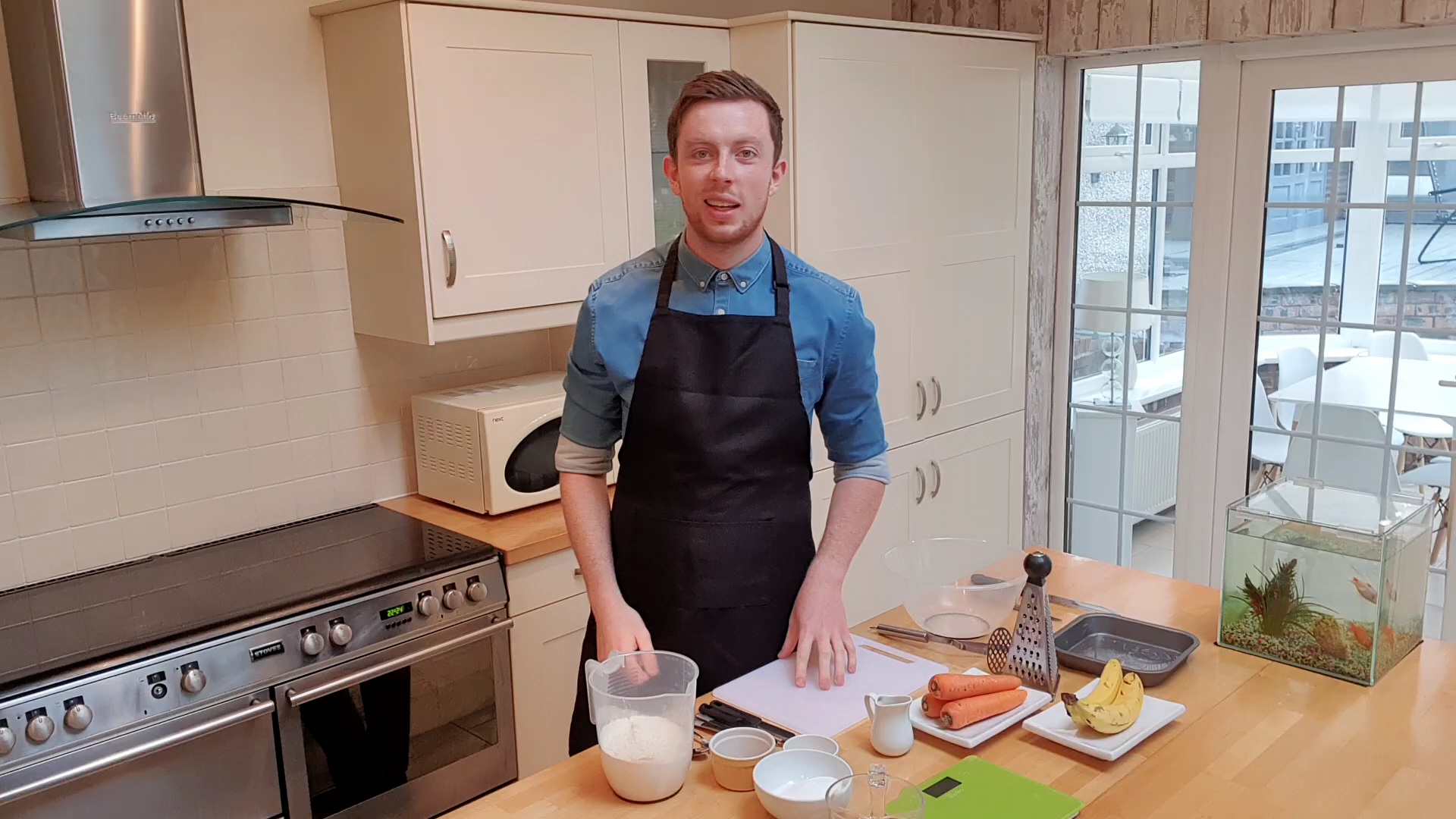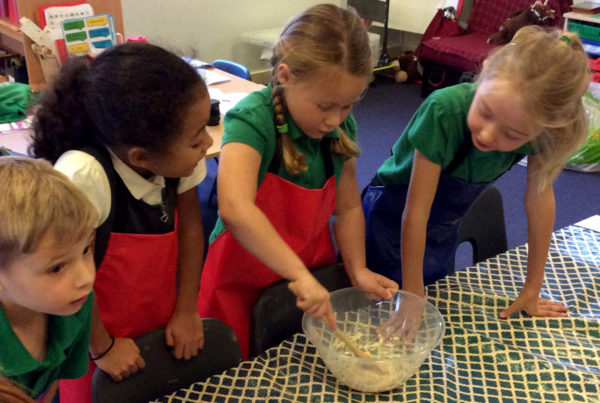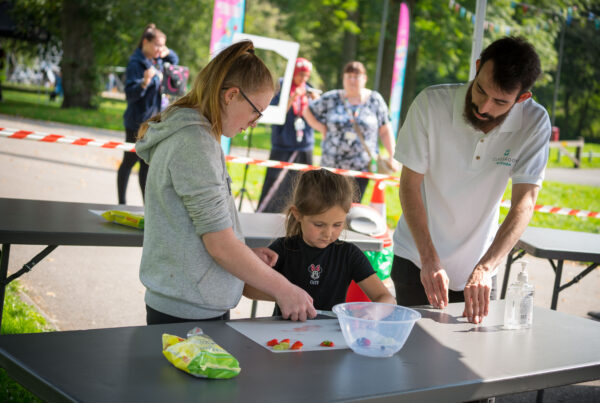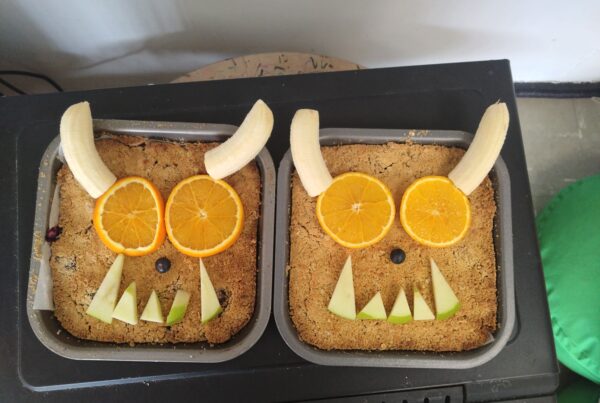Child Obesity is on the rise and it’s once again turning to schools to try and help fix the problem. With schools at the heart of communities, we can make a huge impact on issues such as the UK Obesity Crisis. NHS findings show that 1 in 3 pupils leave primary school overweight or obese, with 1 in 5 starting primary school overweight.
This doesn’t mean that primary schools are the problem and with 2 out of 3 of a pupil’s meals outside of school and the third possibly being a packed lunch, there is very little blame in that area. However, with pupils in school for almost 7 hours a day through the week and with such influence in your local area, you have a fantastic opportunity to make an impact on the above statistic.
Think PE, packed lunch policies, cooking sessions and community education. There are many ways we can help but we’re sharing our Top 5 ways in this blog post!
There is also an opportunity to download on this occasion. Simply hit the Download button. Feel free to print and share around school!
5 ways to tackle and prevent Child Obesity in your Primary School
Child obesity is becoming an ever more present problem across primary schools in the UK. With increasing access to fast food, busier lives for parents and the digital age, our children are paying the price with their health. It is up to us as a country to tackle the crisis of today to save our young people from an unhealthy and short future.
Why is it another problem that primary schools must deal with? Well, it’s not just a primary school’s problem but it’s one that has a huge impact on the early lives of children and one that if dealt with early could change that child’s life for the better. Statistics link child obesity to bullying, school absence and low self-esteem. As practitioners we understand how huge an impact those 3 things can have on a child’s learning. The studies therefore show that it’s not just the health of these children that is at risk but also their mental wellbeing and future academic potential.
What is causing the increase in child obesity across the UK?
The 3 main causes are excessive eating, poor diet and lack of exercise. Children who live in areas of deprivation, have a higher risk of child obesity, this could be for a number of reasons. Children with over-weight parents are also at higher risk of child and future obesity.
Our 5 ways of tackling child obesity:
- Build a love for being active.
- Adopt a packed lunch policy (and be strict with it).
- Educate parents.
- Role models and rewards.
- Equip your children.
Read on to find out more about each section. Remember, you can download this guide by clicking the button below:

1. Build a love for being active!
PE is a great place to start but it’s not the place it should end. What other opportunities are children being offered to be active in your school?
How are playtimes and breaks managed? What extra provisions does your school offer? Are you doing anything to encourage activity outside of school?
Break times are a great place to start. Having teachers or lunch time staff run 5 minute mini games or activities is a great way to encourage children to play actively. By starting their break or lunch with an active game, they’re more likely to continue playing the game or another afterwards. It’s also a great way to control behaviour by beginning with an adult led activity.
Most schools do make use of older children to ‘buddy’ the playground. Could these children be leading sports and activities too for some of the younger children?
You will always have some children who may not want to get involved but they may still like to create or play their own games. Having a range of equipment on offer is a great way to allow independent play. These can be as basic as skipping ropes, balls, cones and bean bags. My advice would always be to set some initial boundaries and show the children ideas on how to use the equipment in order to build a respect for it. Most problems start from the misuse of the equipment and this is going to create a negative impression of being active opposed to the positive, energetic atmosphere that you want your playgrounds to have.
Extra provisions…
Extra provisions such as before and after school clubs are great. These need to be carefully monitored as to who is attending and see if there is a pattern of children that are or not taking part. If you have issues with child obesity within your school, how can we ensure or encourage that some of our target children to attend? Are we offering enough range in sports and activities? Does a session always have to last an hour? Some children (and parents) are put off by the idea of having to commit an extra hour of time, especially when siblings are in the school that can’t attend the same club therefore why not consider offering a shorter session. This could also help with staffing the sessions too!
Building a love for sports and being active should be the main priority when trying to tackle or prevent obesity.


2. Adopt a packed lunch policy (and be strict with it)
So if you want to get serious with your packed lunches then unfortunately you’ve got to be strict on what’s in them, even if this means taking food off children! No one wants to do that! Our best suggestion is have some healthy alternatives ready to switch in for banned items (fruit and sandwiches are always good). Implement a strike system with the parents and notify them when an item has been switched. It may cost you some money as a school at first but if a strike system is stuck to and some form of ‘fine’ is implemented upon the third strike, then you should quickly see your healthy packed lunch policy adhered to!
Just be realistic on expectations and keep banned items generalised, if chocolate is on the ban list, this should include chocolate flavoured items too. Don’t allow room for the rules to be exploited… we’ve all tried it!
Make suggestions and offer support…
There’s a fine balance needed to keep packed lunches positive. For every banned suggestion, suggest an acceptable one. Give parents the knowledge they need about food to make packed lunches an easy yet healthy option! It could be a great opportunity for some workshops or at least some advice leaflets to help them on their way!
The bottom line. The easiest way to ensure healthy eating within your school is to provide it yourself! There are 2 main reasons why families opt to send their child with a packed lunch: Their child is a fussy eater or they can’t afford a school meal! Money is the driving force behind most decisions. If school meals are made to be more affordable, more families will sign on for them. Maybe run a survey with parents and research what price would be best for them. Could it be possible to run a fundraising event to lower the cost across school?
3. Educate parents
In the last section, we discussed packed lunches and the idea of providing parents with the knowledge and skill needed to build a healthy packed lunch for their children each day. As schools, we’re built on education. Education changes the world. Therefore if you’ve got an obesity crisis within your school, it’s probably just down to a lack of quality information.
We spend a lot of time educating our children but in primary schools, most decisions in a child’s life are made by the parents, not the children. A lot has changed since most of your parents were probably in an educational setting. In regards to health and food, most findings on obesity and its consequences have come within the last 15 years. This means we have generations of adults who may not know the whole picture. If we’re not careful, these clouded ideas may be passed down to our children meaning it’s just as important to educate our parents and wider community!
Workshops and other opportunities…
Running workshops, classes and offering information can do no harm. Look for every opportunity so share a message about good health. Class assemblies are a really good way as you’ve already got a captive audience. Who better to educate your school’s community than the children themselves! Other options could be as simple as speaking to your local hospital/clinic and see if a professional could come and give a talk or run a short drop in for parents. Look to fight obesity at the source and offer workshops on home cooking. Here at Classroom Kitchen, we work with lots of schools and their wider communities, most parents are happy to admit that they don’t feel confident cooking and therefore choose ready meals and takeaways in avoidance of struggling themselves!
It doesn’t just have to be a workshop for the parents alone either as that can sometimes be found daunting. Consider running classes as a parent and child event. Aside from food and eating, exercise is just as important. You could run some sporting events where the parents can participate too! We’ve all seen how competitive the parent race at Sport’s Day can be!
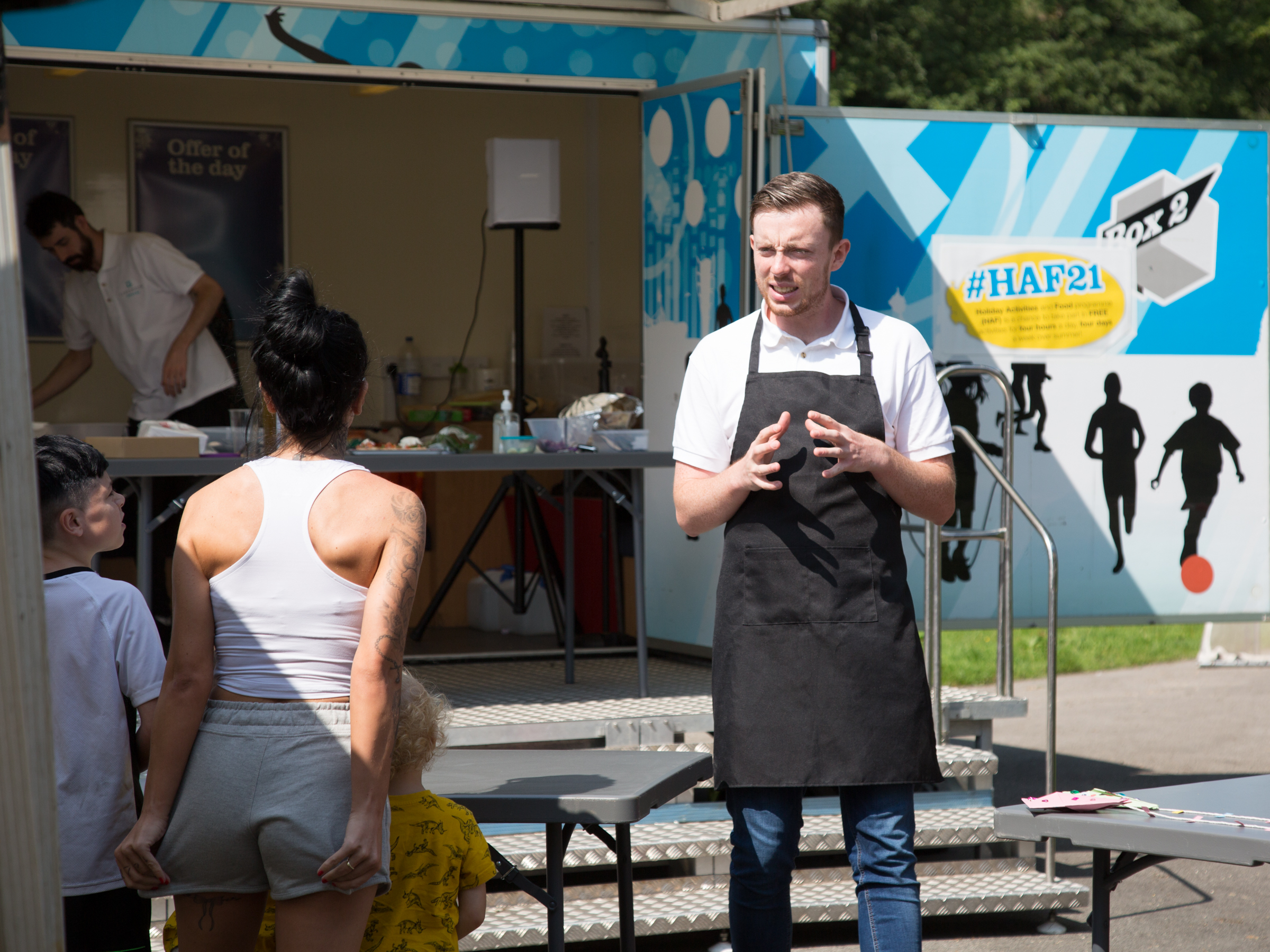
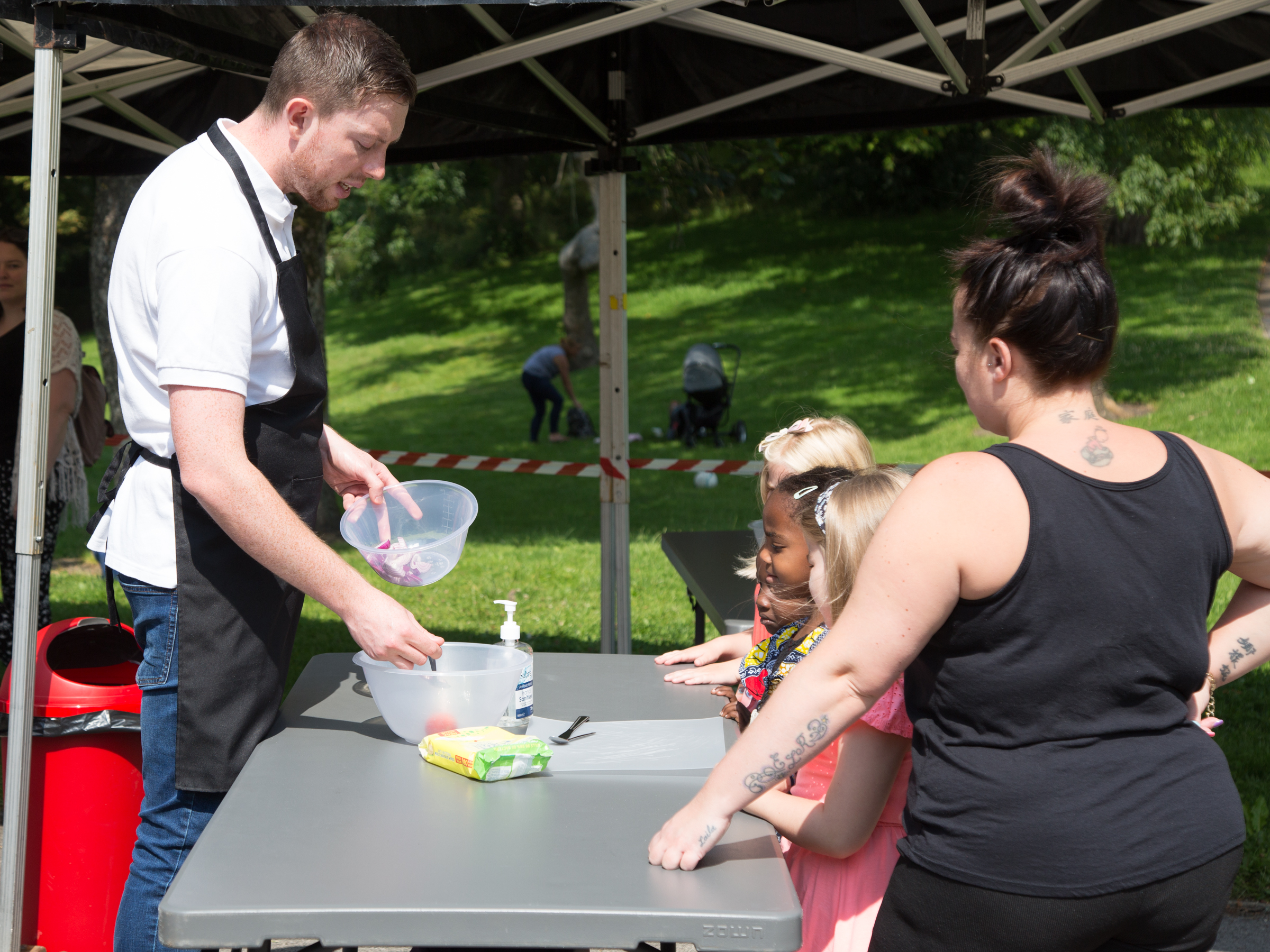
4. Role models and rewards
To get people to change, you have to somehow motivate them to do so. That applies to most movements in life. To tackle the obesity crisis within Britain, we need people to self-motivate themselves to change or to stick to a healthy lifestyle. Most of these routines and motivations start at a young age when children learn what is right and wrong. If we want to tackle obesity in our schools as well as prevent it, we have to encourage children from a young age to make positive choices regarding their health.
Best way to do this is to exemplify what the positive choices look like. You could have a simple chart in the classroom for children who have a piece of fruit every day to get a mark on the chart (especially in KS1 where fruit is provided). Other ideas could be at playtime where children could get a token for doing certain activities, for example, the daily mile. These tokens could later equal a reward or be traded for a prize. This then brings us onto the idea of Role Models.
You can create such a desire to make healthy choices simply by making a fuss of those that do! Celebrate when children achieve the healthy goals that you as a school want them to achieve. In most cases, those who haven’t, will want to find a way to be in that position.
5. Equip your children
How can we fight the battle on obesity? Simple. Do what we do best…Teach!
Equip your children with the knowledge and skills they need to move through life in a healthy and responsible way. Don’t just look at tackling, but as the title of this e-book states, prevent it.
How and when do we do this? Through your PSHE sessions, Cooking and Nutrition lessons, PE, Science and every other opportunity that presents itself. If our children leave primary schools with the knowledge of knowing how exercise and the human body work along with fundamental cooking skills and a basic knowledge of food, then the majority will live that healthy life that we preach about! By not finding time for these within our curriculum then we’re not giving our children the tools they require to live the right lifestyle.
Give our children the tools they need to tackle life and in return, they’ll tackle the obesity crisis of our generation.
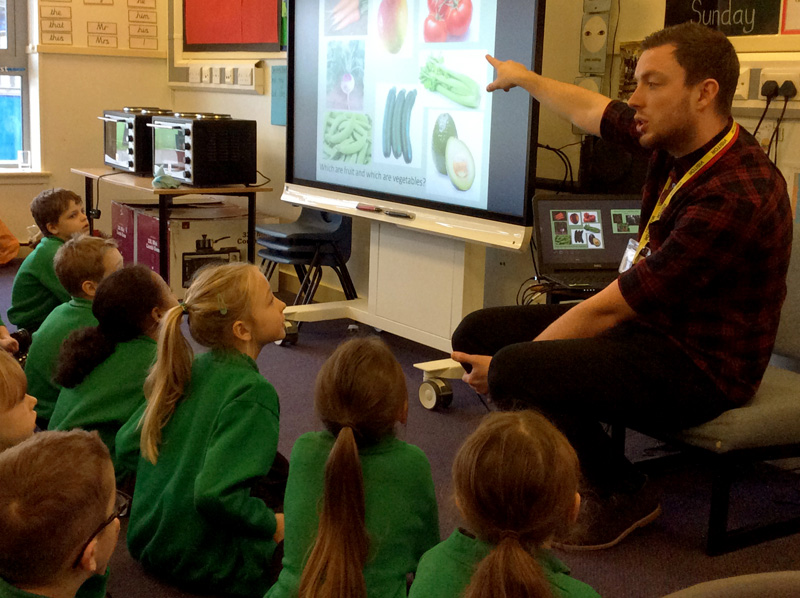
Tackle the Child Obesity crisis…
Share these ideas in your school, print and add this to your staff room or fire it around on a staff email. See how many of these you can get up and running and see which of these you already do!
You can download the full guide here:
The guy behind the rambling…
For anyone who doesn’t know me or hasn’t met me before, I’m James Deveney, owner of Classroom Kitchen and former Primary Teacher.
Contact:
Email: james@classroom-kitchen.co.uk
Twitter: /educooking_MrD
